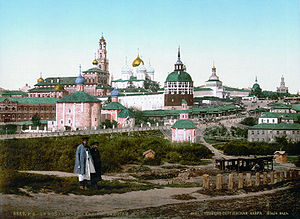UCG’s “Legal” Opinion
Friday, April 23rd, 2010
Ancient Laodicea
The following is from Larry Darden “As General Counsel for the Church and Special Counsel to the Board of Directors” for UCG:
On March 18, 2010, a document titled “Resolution to Establish a Governance Review Task Force” (herein “Resolution”) was sponsored by three Corporate officers (President, Secretary and Treasurer) and sent out by the Secretary as an “agenda” item as part of the packet for “Call and Notice” to all members of the General Conference of Elders (GCE”) to be balloted on at the annual GCE conference to be held in early May 2010. Instructions regarding the balloting on said Resolution stated that the same “will stand approved” if it received “a simple majority approval (“YES” ballots).”
The Council of Elders (“Council” or “Board”) were not given an opportunity to see the Resolution before it was mailed out and the Church’s attorney Larry Darden, who serves as both General Counsel and as Counsel to the Board (“Darden”), was also unaware of the Resolution, its contents, or even that it was being contemplated by these Officers prior to its dispatch.
On March 25 the Chairman of the Board, after conferring with attorney Darden, sent a letter to the GCE to the effect that he was asking the Council and our legal counsel to carefully review the content and ramifications of this resolution with the possibility that Council “may in the near future issue a statement regarding the same.”
Since attorney Darden reports both to the President (as General Counsel) as well as to the Chairman of the Board (as Special Counsel to the Board) it was deemed prudent to also obtain the opinion of another attorney specializing in California non-profit religious law at a highly respected and prestigious law firm. The same attorney who had helped the Church during governance troubles in 1998 was retained for that purpose.
It should be noted that the Church is required to adhere to applicable corporate law as well as its own governing documents.
At a meeting of the Board on April 8, 2010, the opinion of the attorneys present was that the Resolution violated the Bylaws and the Constitution and that if the Council agreed with their opinion it had the right and power to withdraw the Resolution as an agenda item…Legal Counsel does not support the Resolution. There are a great many concerns about it beyond the legal opinion that it is a clear violation of the Bylaws. It has a generally negative tone, and appears to use carefully selected catchwords or presumptions that implant questions and unwarranted doubts about the structure of the Church’s governance. Counsel does not agree, as stated as a fact in the Resolution, that “our current governmental system” contains “inherent weaknesses” which, if not corrected, “will deeply and irreparably damage the United Church of God.”
The GCE created a representative structure with a Council (board of directors) empowered to do what is normally done by such boards, including the appointment of officers who are expected to work very closely with the board, keep it informed of important developments or matters of concern (such as their proposed Resolution) and to carry out the board’s directives. If changes are needed in our governance they should be specifically identified and implemented through our existing amendment process.
I also object to having my name associated with the Resolution and to being involuntarily assigned to what could be a very long and time-consuming assignment without the Council’s permission.
The Resolution could have been properly withdrawn for any of the reasons stated in the opinion, but I believe the cumulative effect of them all coming together (as well as other matters of concern in that document) justified the Council’s decision to withdraw the Resolution.
After reading the whole document over, I was not impressed. But since I am not part of UCG, it matters little.
It seems that basically, two or more legal advisers felt that something that apparently UCG’s president and some other top leaders wanted to propose was not a good idea. Having held high level positions in various corporations, this does not seem like it should have led to the current UCG crisis. Especially since “bylaws” can be (and have been) amended in the past. Since it was not worked out between the UCG officers and the board, apparently they decided that they really were not united and agreed to part company.
UCG always has had governance problems and the recent events, and the above letter, simply highlight that.
Some articles of possibly related interest may include:
Polycarp, Herbert W. Armstrong, and Roderick C. Meredith on Church Government What form of governance did the early church have? Was it hierarchical? Which form of governance would one expect to have in the Philadelphia remnant? The people decide and/or committee forms, odd dictatorships, or the same type that the Philadelphia era itself had?
Differences between the Living Church of God and United Church of God This article provides quotes information from the two largest groups which had their origins in WCG as well as commentary.
There are Many COGs: Why Support the Living Church of God? This is an article for those who wish to more easily sort out the different COGs. It really should be a MUST READ for current and former WCG/GCI members or any interested in supporting the faithful church. It also explains a lot of what the COGs are all about.
Should the Church Still Try to Place its Top Priority on Proclaiming the Gospel or Did Herbert W. Armstrong Change that Priority for the Work? Some say the Church should mainly feed the flock now as that is what Herbert W. Armstrong reportedly said. Is that what he said? Is that what the Bible says? What did Paul and Herbert W. Armstrong expect from evangelists?
The Laodicean Church Era has been predominant circa 1986 A.D. to present. These are non-Philadelphians who mainly descended from the old WCG.








